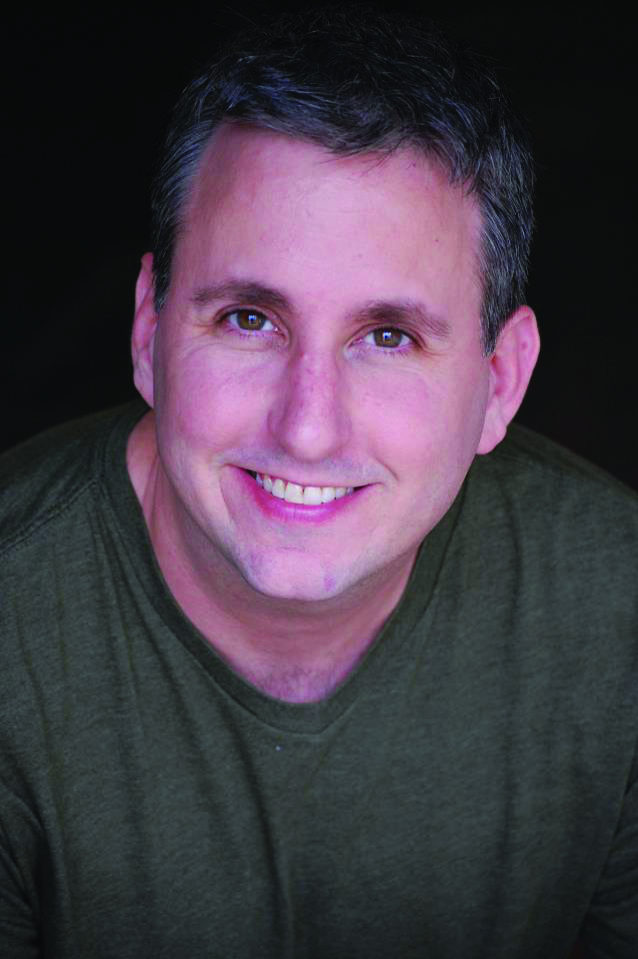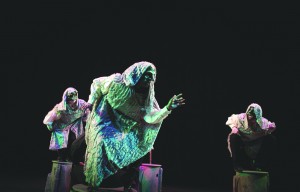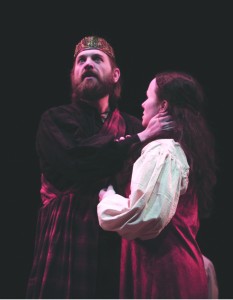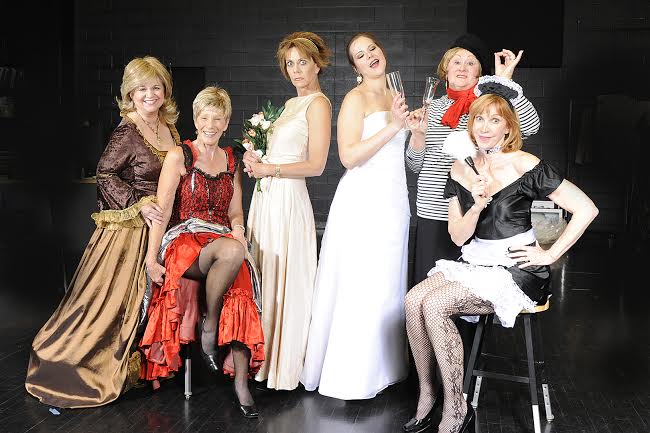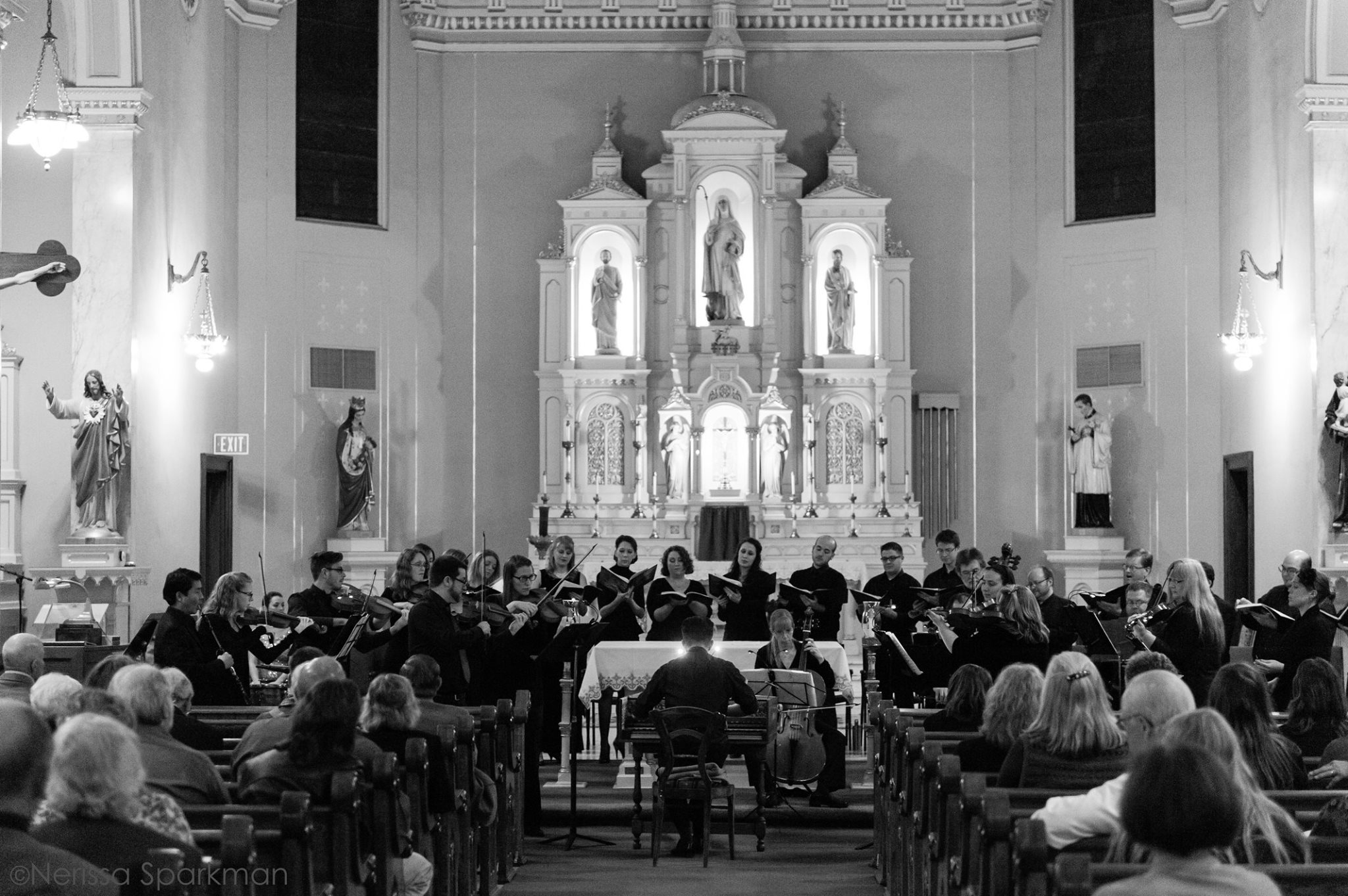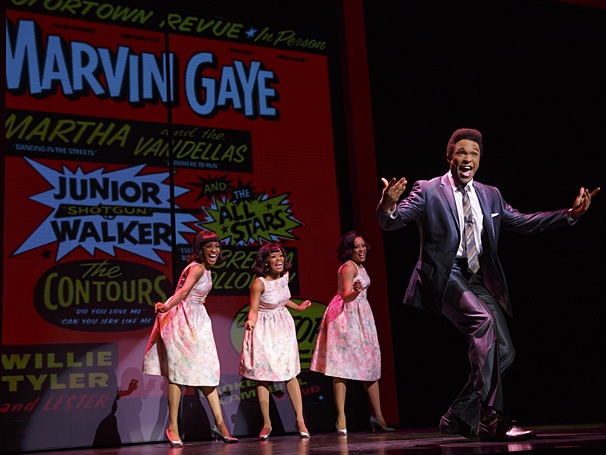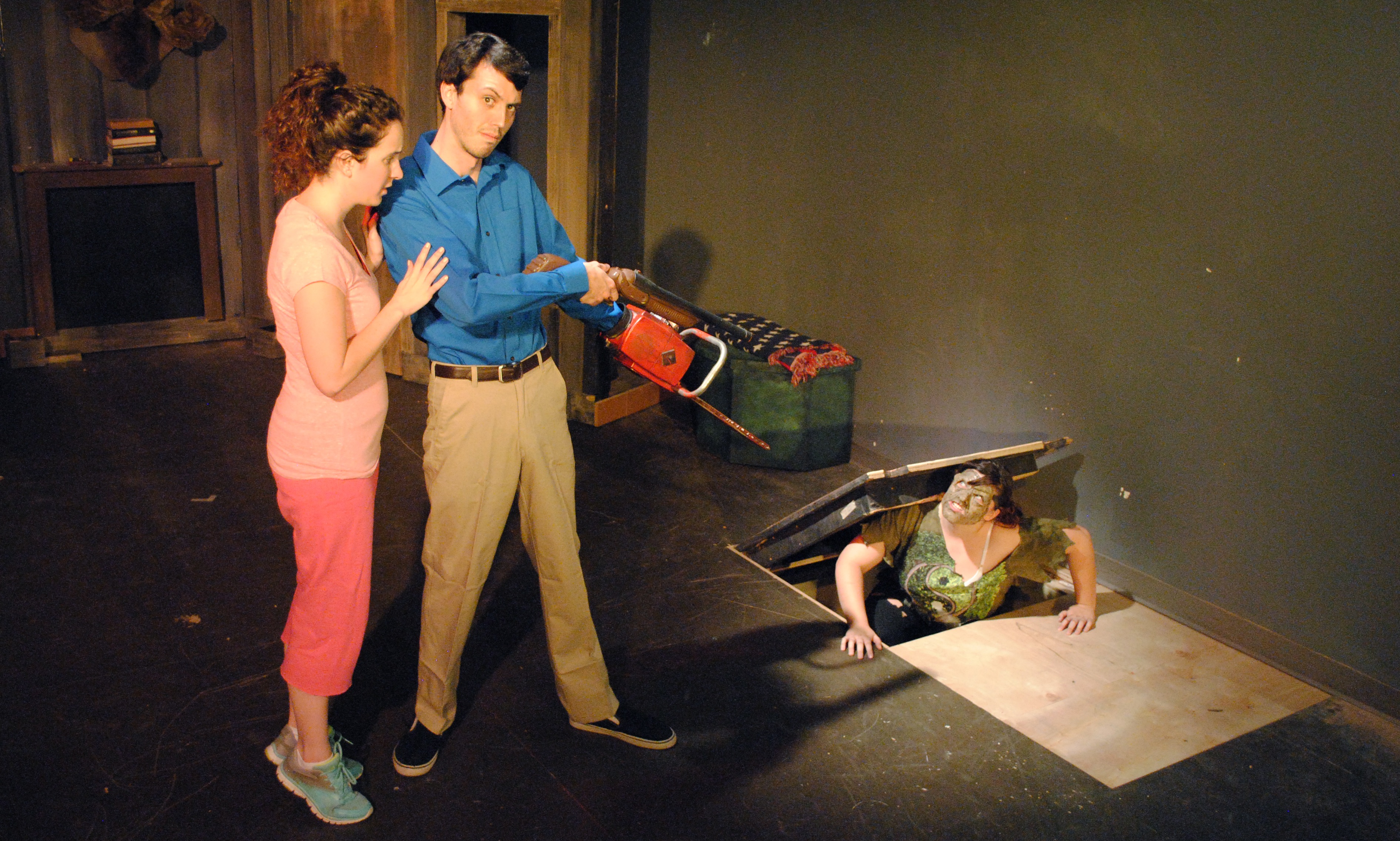Interview by Scott Dowd. Entire contents ©2015 Fearless Designs, Inc. All rights reserved.
The Kentucky Shakespeare Festival, at fifty-five years, is the longest-running event of its kind in the United States. This year, Producing Artistic Director Matt Wallace and his team have extended the professional season, which began June third, by one week. They have also added to the festival atmosphere with more dining options and performances by community arts groups. For those of us who have attended performances at the C. Douglas Ramey Amphitheatre, Wallace promises increased comfort in the form of new, in-ground benches as well as improved sound and lighting to show off the larger, more ambitious productions. Matt Wallace began his career with Kentucky Shakespeare as a performer, plus he met and proposed to his wife in Central Park. When he speaks about the Festival, he has the enthusiasm of zealot tempered by the experiences of someone who has seen the object of his passion through the difficult times.
Matt Wallace: This will be the longest season we have ever done. There will be forty-five professional performances over the course of eight weeks. We open with The Tempest and are excited to be working with ZFX Flying on this production—I think it might be the first time we have ever flown anybody in Central Park!
Scott Dowd: You don’t have a lot of super-structure around the stage. Do you have to add rigging?
MW: Luckily we don’t. Thanks to the Kentucky Colonels, The Fund for the Arts and LG&E, we are putting in a brand new lighting truss this season. We have needed one for a long time. The current structure is twenty to thirty years old. When Curt Tofteland left this position in 2008, he said, “This truss has to be replaced.” It was rusting through. Our technicians couldn’t walk on it any longer—they had to use a lift. Luckett and Farley designed the new one.
SD: Will it be sturdy enough to fly Ariel?
MW: Yes, it’s an eighteen-inch I-beam with a catwalk that goes all the way around the stage. We will have several points at which ZFX can hang their apparatus.
SD: Thematically, what keeps The Tempest relevant for a contemporary audience?
MW: In my work with Shakespeare Behind Bars, I am most drawn to the themes of redemption and forgiveness. In our society, mercy is not exhibited as often as I would like. Jon Huffman is playing Prospero this summer. Often he is portrayed as a frail old wizard. But Prospero is a man who wants revenge. He has been wronged and he spends the play trying to get revenge. Then he is presented the opportunity for mercy at a crucial moment and decides that “the rarer action is in virtue than vengeance.” That is what excites me about this play. I love its magical quality and I knew it would be a great follow-up to A Midsummer Night’s Dream. This is believed to be one of the last plays Shakespeare wrote. The language is more complex and it is darker.
SD: It also deals with the idea of change as a constant element of life. That has become a cliché now, but the Elizabethans were witnessing the opening of the New World.
MW: That illustrates why Shakespeare is timeless! I hope the audience connects with that. The last time we did The Tempest a few years ago, it was a scaled-down touring production. I wanted an opportunity to provide our audience with this production on a grander scale that will fill the newly renovated stage.
SD: Who is playing Calaban?
MW: Dathan Hooper, who played Oberon last year, is back as Calaban. You will see some returning faces this season and some new faces. About ninety-five percent of the people we have hired this summer are based here in Louisville.
SD: That is something to be proud of and says a lot for the community.
MW: I’m excited about it. We have sixty people working for us, and three are from out of town. Two very talented actors are coming in from Cincinnati Shakespeare and one is coming from New York to play Ariel. Scott Bradley is composing original music for it. We have a big cast—we have added some actors this season, and Amy Attaway is returning to direct The Taming of the Shrew. Greg and Abigail Maupin will play Petruchio and Kate, respectively.
SD: That will be fun. They are always a joy. I saw their Le Petomane theatre company production of Twelfth Night and there were moments of real genius.
MW: They are brilliant performers and I knew Amy Attaway would have a vision and a story to tell in directing this play. We had a great experience working together last year. Greg and Abigail are hysterical—their command of the language is wonderful. I can’t wait to see what they are going to do!
SD: Will this be a traditional staging?
MW: It is going to be an Elizabethan set, but they are telling an Italian story, so I’m sure they will incorporate some of their Commedia del Arte strengths into the production.
SD: The season closes with Macbeth—maybe the best known of Shakespeare’s plays next to Romeo and Juliet.
MW: We are adding even more performers for Macbeth—we are doing the 23-actor version with a bagpiper in the show. It’s a big, epic production that will run for two weeks. I didn’t want a sophomore slump. We’re not picking small shows this year. We have been touring the seven-actor version and we will add sixteen more. It is a very intimate, very dark story about ambition and greed. But it also needs to have an epic feel, so we are going to add the battle at the beginning of the play. I want to fill that stage and fill the park to give audiences a memorable experience.
SD: Do you speak the name of the play when you are standing in the park?
MW: I feel it might be open enough space, but I’m not going to jinx the production. I pretty much never say that word if I am in a theatre.
SD: How did that superstition start?
MW: There are occurrences of bad things happening during the play throughout its history—the lead actor dying, many injuries, etc. People started to wonder if it was because there are actual witch’s incantations in the script. There are theories, but it’s a dark play with fog and weapons, people wearing masks—a lot of potential for accidents. We will be on our toes.
SD: You are going to do these three plays in repertory for two weeks.
MW: Yes, you can be in town for 50 hours and see all three shows. The last Saturday night of the run, July 25, we will do the Bard-A-Thon again. Starting at 4:30 p.m., people can see all three shows, in their entirety, in one evening.
SD: During the repertory performances, do you change out the sets completely?
MW: We do leave a short amount of time for that. Paul Owen will be back to design our sets again this year. He never ceases to amaze me. It will be something totally different this year and very creative. He designs all three productions with the rep model in mind. So there will be some similarities with pieces added for specific productions that help us tell the story.
SD: I noticed that the calendar at KYShakespeare.com doesn’t end July 25.
MW: No, it doesn’t because we have our Globe Players student production following Bard-A-Thon. Kyle Ware will be directing The Comedy of Errors. Then two community partner companies will perform new works inspired by Shakespeare: Doug Schutte, the artistic director at the Bard’s Town Theatre in the Highlands, wrote a play called Chasing Ophelia when he was at the Globe Theatre. It ties together different characters from Shakespeare’s plays. Since it was written to be played at the Globe Theatre, it will play very well here. Diana Grisanti and Steve Moulds are writing a brand new play entitled The Two Lobbyists of Verona. It’s a comedy and will have themes from all three of our shows. We will also have our free, late-night improv show—Late Night Shakes. On three Saturday nights, the Louisville Improvisers will create their own Shakespearian play.
SD: Is that happening during the professional portion of the run?
MW: Yes, and they may keep a couple of actors from the main stage production as guest stars. We pushed it to 10:30 p.m. because we don’t want to limit the improvisers and they can get a little bawdy.
SD: Is that new this season?
MW: Yes, this is another brand new feature of the Festival. The three guest companies are all doing new takes on Shakespeare, which is exciting. We want to keep surprising people…you never know where you’re going to see us. One of my goals this season has been to find unconventional places where you wouldn’t expect to see Shakespeare. We have performed at the resurfaced pop-up plaza on Main, in all the libraries and at different parks around the area. We have done candlelight readings of Macbeth in empty storefronts and at Locust Grove. In January we partnered with The Kentucky Center to do George Bernard Shaw’s one-act radio play, The Dark Lady of the Sonnets. It has been so neat to branch out and approach the Bard in new ways.
SD: Kentucky Shakespeare Festival performed at nine different city parks last season. How many are you doing this year?
MW: We toured to eighteen parks, including two in Indiana. We were at the Base of the Big Four Bridge in Indiana and in New Albany. We added Jeffersontown and Lyndon and the rest are Locust Grove and Metro Parks.
SD: This is all during the “off” season.
MW: That’s right. This was during our down time. We don’t like down time.
SD: Where do you get your performers for these offerings?
MW: We have a corps of performers/actors/educators we employ throughout the year. We have five actors on the road right now who will serve fifty thousand students in the classroom. We just hit our fifty-eighth county this season; we still have sixty-two more to go.
SD: That’s pretty impressive.
MW: It’s the most counties we have served in one season in a very long time…it might be the most we have ever served. We are the state Shakespeare Festival, so we really want to have that presence throughout the Commonwealth.
SD: That’s a lot of work for five people.
MW: We also have four artist/educators whom we contract out per residency. Occasionally, you will even see the office staff and me in the classroom.
SD: That’s a big impact for a company with a small permanent staff.
MW: I would like to reach one hundred thousand people a year. Last summer we reached 27,000 in addition to our 50,000 in the classroom. If we have a good summer this year, we could meet that goal.
SD: Even though Kentucky has the oldest free Shakespeare Festival in the country, it still costs money to do all of this. How are the organization’s finances?
MW: It has been great. Our education program is bringing in more earned income than we have had in the past. Last year we experimented with food trucks in the park, so we have two or three at every performance now and we get a percentage of that. Of course, we keep all our bar sales and our merchandise. By not charging admission and offering those things for people to choose, we are able to make more income at the park than ever before in the history of the company.
SD: You are still taking donations during the performances.
MW: Oh, yes, and everyone has been very generous. We also have our sponsors, such as Brown-Forman, Gheens Foundation, Horse Shoe Foundation and the Norton Foundation. It has been really exciting to see that as we have delivered what we said we would, the donors have come to make more possible. We are in great financial shape. It’s really nice to have the season funds in place before the season. Now when someone donates in the summer, it goes to support the next year. These might seem like little things, but it allows us to focus on the creative and not the financial. I continually remind the board, the staff and myself that we are a not-for-profit, charitable organization. Sometimes not-for-profits lose sight of the fact that they are a charity. We have to maximize every penny we spend and stretch the donations. We added a director of education this year and it has really paid off in our bookings.
SD: You mentioned 27,000 attendees in the park last summer. How does that compare with previous seasons?
MW: We had unprecedented growth last summer. We went from 4,800 people in 2013 to more than 27,000 last year. Up to last year, the highest recorded season was 13,000 people. We more than doubled that record and we also provided more shows than ever before! We took a calculated risk to achieve what I knew we were capable of doing. I couldn’t be more grateful to the public for saying, “Yes, we want to come.”
SD: The weather was also cooperative last year.
MW: It was perfect. We were only rained out about three or four times. We are doing ten weeks this year: fifty-nine performances over seven productions.
SD: What is your rain policy?
MW: You know how Louisville is. It can be pouring at six and clear by seven. We don’t make the decision until 8 p.m. If it is raining then, we will hold twenty minutes and make the call at 8:20. On opening night it was pouring on Story Avenue, but it never rained in the park! We started utilizing social media to get up-to-the-minute information out via Facebook and Twitter.
SD: How is the seating in the park?
MW: When I first took this job, I knew there were some audience experience issues I had to address. Last season we updated the sound system that also allowed people in the hearing-impaired community to enjoy the shows more fully than ever before. The next was the truss we talked about earlier. The third issue was seating. The benches were more than twenty years old. In January we launched a bench campaign to build permanent, in-ground seating. I am happy to say that we reached that goal and this summer we will have an amphitheatre full of new PVC-coated steel seating. The new benches are slatted and an inch bigger than before, representing the style of the Olmsted park. We have had people dedicate them to loved ones, teachers, performers. I also have to mention that Councilman James has planted twenty-seven new trees in the park and installed new pergola lighting in the back. The park has gotten a big facelift for this summer.
SD: It sounds like you have everything in place. What’s left to achieve?
MW: I will continue to look for unconventional performance spaces and continued relevance throughout the year.
SD: What kind of reception do you get outside of Louisville?
MW: The proof is in the number of people who continue to have us back and the number of people asking us to come for the first time. It’s all tied to core content, so it’s helping to improve test scores. Some of these students have never seen a play, much less Shakespeare. I started with the company as a performer—so I’ve been out in those gymnasiums across the state and I’m excited to see that grow.
SD: Are you part of the Governor’s School for the Arts?
MW: We work with them—I am a 1990 graduate myself. Last summer I did a Shakespeare intensive with students. Then we brought the entire student body to the park to perform on a Saturday night. Governor’s Scholars also works with us and I am looking to strengthen that relationship. My goal is to help them recruit while we are out in the state. This year we will bring brochures for those students who don’t know about it.
SD: From what you have told me, it sounds like the Kentucky Shakespeare Festival is poised for a very successful season all round.
MW: My hope is that the 27,000 people who came last summer will all return. I know that there are that many again who heard about it but who weren’t able to get out to the park. We have worked so hard to improve the audience experience and increase the caliber of the shows, and I don’t want anyone to miss out. This will be the biggest season ever for the Kentucky Shakespeare Festival, and I hope everyone will take advantage of the country’s oldest FREE Shakespeare Festival. Come out and eat at the food trucks, get something to drink, sit on our comfortable new benches, and enjoy the new lighting and sound systems that help us bring the Bard’s timeless stories to life!
Kentucky Shakespeare’s Twitter account is @KYShakespeare. Follow them there so you will have all the information you need in case of inclement weather. Their goal is to never cancel a production! For more information on the performances and schedules, go to kyshakespeare.com.
Photo credits: Macbeth – 2015 Kentucky Shakespeare in the Parks Tour.
John Patrick O’Brien as Macbeth; Abigail Bailey Maupin as Lady Macbeth. Photography: Holly Stone, ilex.lapis.

